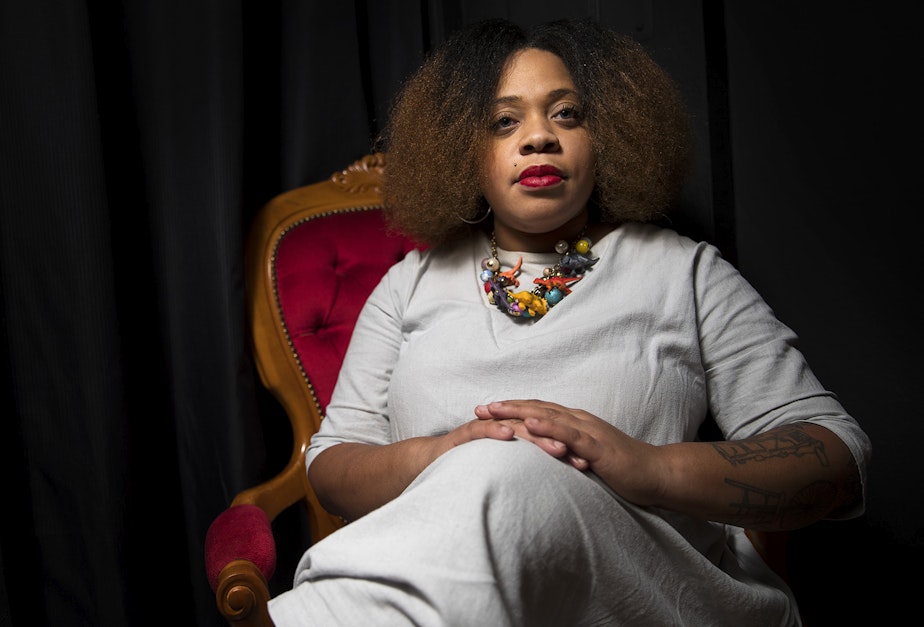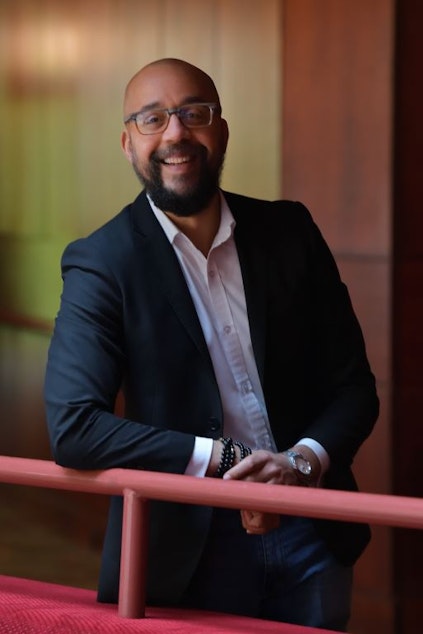Creating Black arts spaces: 'We need honest conversations about Blackness'

Last year Elisheba Johnson left her job at the city of Seattle’s Office of Arts and Culture. Although she loved the staff and the work she was doing, she needed a change.
“I’d been having conversations with people about what it would mean to work more specifically with my community, the Black community,” Johnson says.
In August 2019, Johnson and three colleagues opened the doors to Wa Na Wari, literally “Our Home,” in the Kalabari language, spoken in Nigeria.
Wa Na Wari is located in the family home of one of the organization’s co-founders, artist Inye Wokoma. They wanted to use this house as a center for Black culture and art. But Wa Na Wari’s cultural mission is inseparable from its location in the heart of Seattle’s Central District, the historic home of the city’s African American community.
“We’re very clear about art as a means of black land ownership,” Johnson said.
Wa Na Wari’s website explicitly talks about the Central District's changing demographics. The neighborhood was 80% Black in the 1970s. Now the Central District's Black population is less than 14%.
Unlike many local cultural organizations hit hard by the pandemic, Wa Na Wari’s funding is secure through the end of 2020. According to Johnson, the group has a dedicated group of patrons. But as Wa Na Wari grows, Johnson and her colleagues have been contemplating other funding sources, specifically public and private foundations and other grant makers.
Unfortunately, most of those philanthropists have diverted their money to emergency pandemic relief funds; Johnson admits competition for that money is fierce.
“You know, if we’re going to apply for organizational grants and they’re gone,” she says. “That puts more pressure on our individual donors to keep us alive.”
Wa Na Wari’s situation isn’t unique, or limited to this particular moment in time, according to Brian Carter, executive director of King County’s arts and culture agency, 4Culture. He points out that many organizations run by and for people of color had been marginalized by major funders before the pandemic hit. Carter says funders of all sizes have a responsibility to go beyond giving lip service to the fight to end institutional racism.
“It’s one thing to say ‘we center racial equity,’” Carter says. “It’s another thing to do the work, which I think is a redistribution of wealth to those who have not actually had it.”
With most polls showing a majority of Americans in favor of taking action to address systemic racism, this may be the moment for major change. Carter worries that moment may be fleeting.
He’s not alone.

“That’s not just the fear, that’s the expectation,” says Michael Greer, the new head of the region’s largest private arts philanthropy, Arts Fund, a United Way-style nonprofit. Arts Fund raises money from businesses and individuals and awards unrestricted operating funds to more than 100 Puget Sound cultural institutions.
“How much can we move the needle before the next shiny thing shows up?”
Greer supports the mission of Black-specific cultural organizations like Wa Na Wari, but he dreams of a time when what he calls the “anchor” organizations will devote equal time to presenting the stories of non-dominant cultural groups. Prior to his move to Seattle, Greer led Oregon Ballet Theatre, where he was a part of a national conversation about how to achieve racial equity and diversity in classical ballet.
Wa Na Wari’s Elisheba Johnson says big arts organizations needs to act on institutional racism, but that’s not her focus right now.
She’s committed to affirming Black culture’s physical---and psychic—space in a predominantly white world.
“What’s been exciting for me as a Black curator working with Black artists exclusively,” she says. “Is the space I can hold so we can have really honest conversations about Blackness.”




